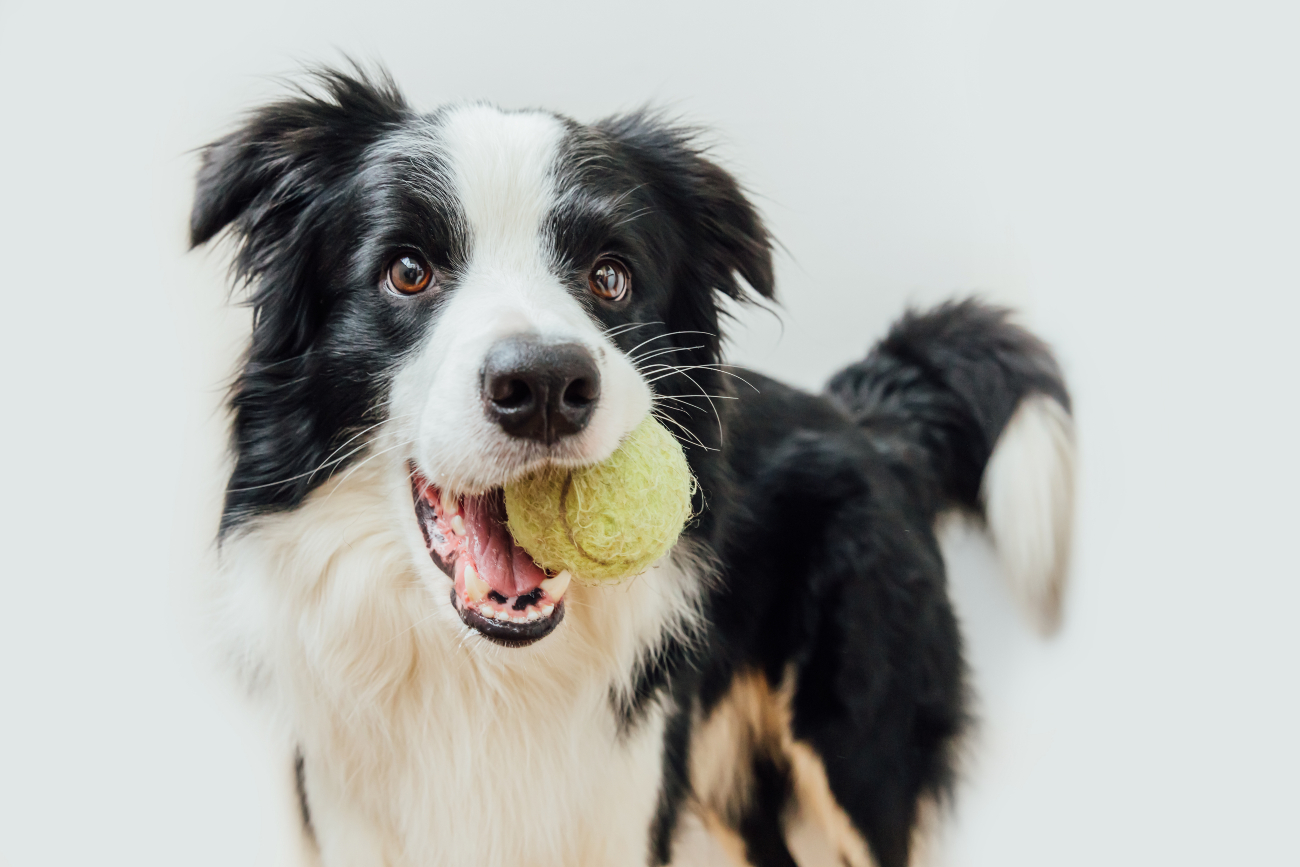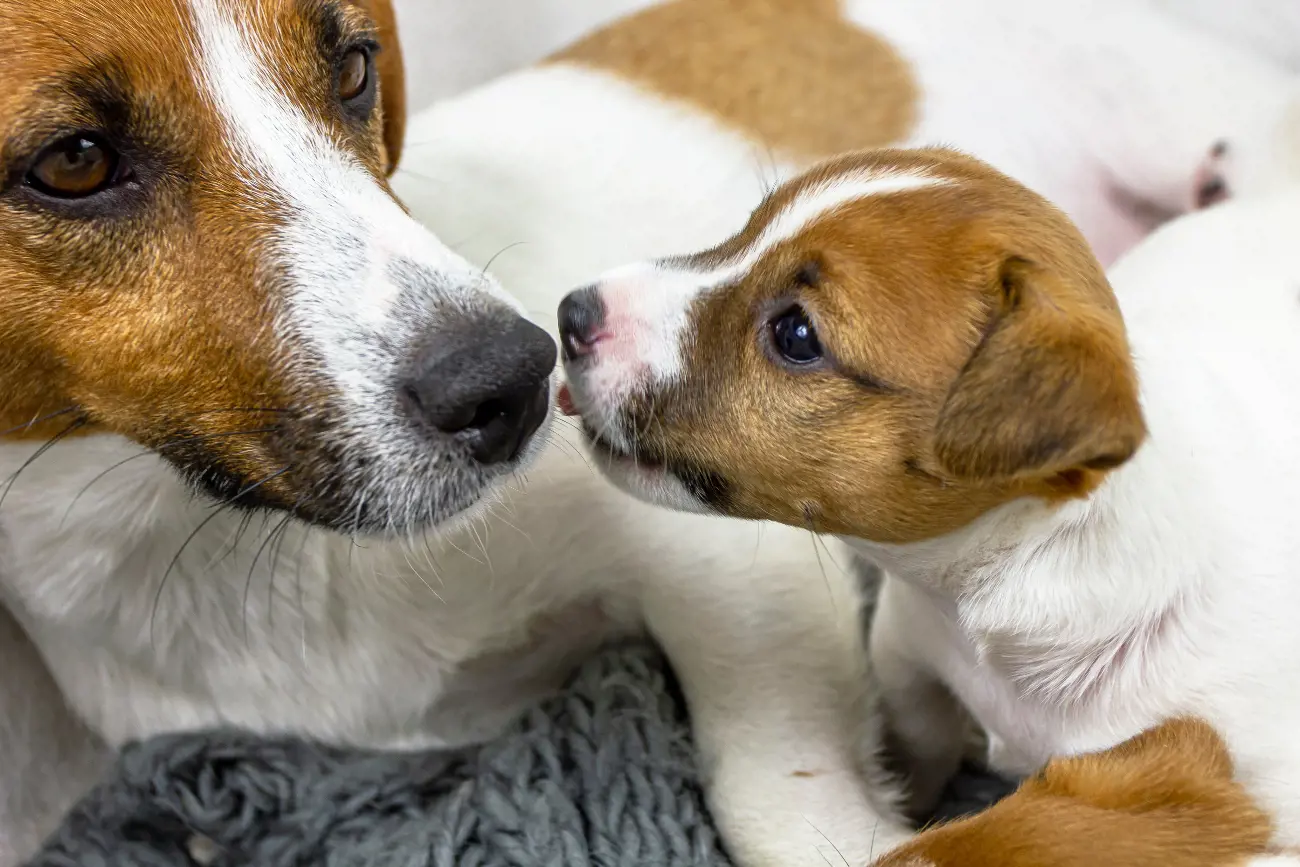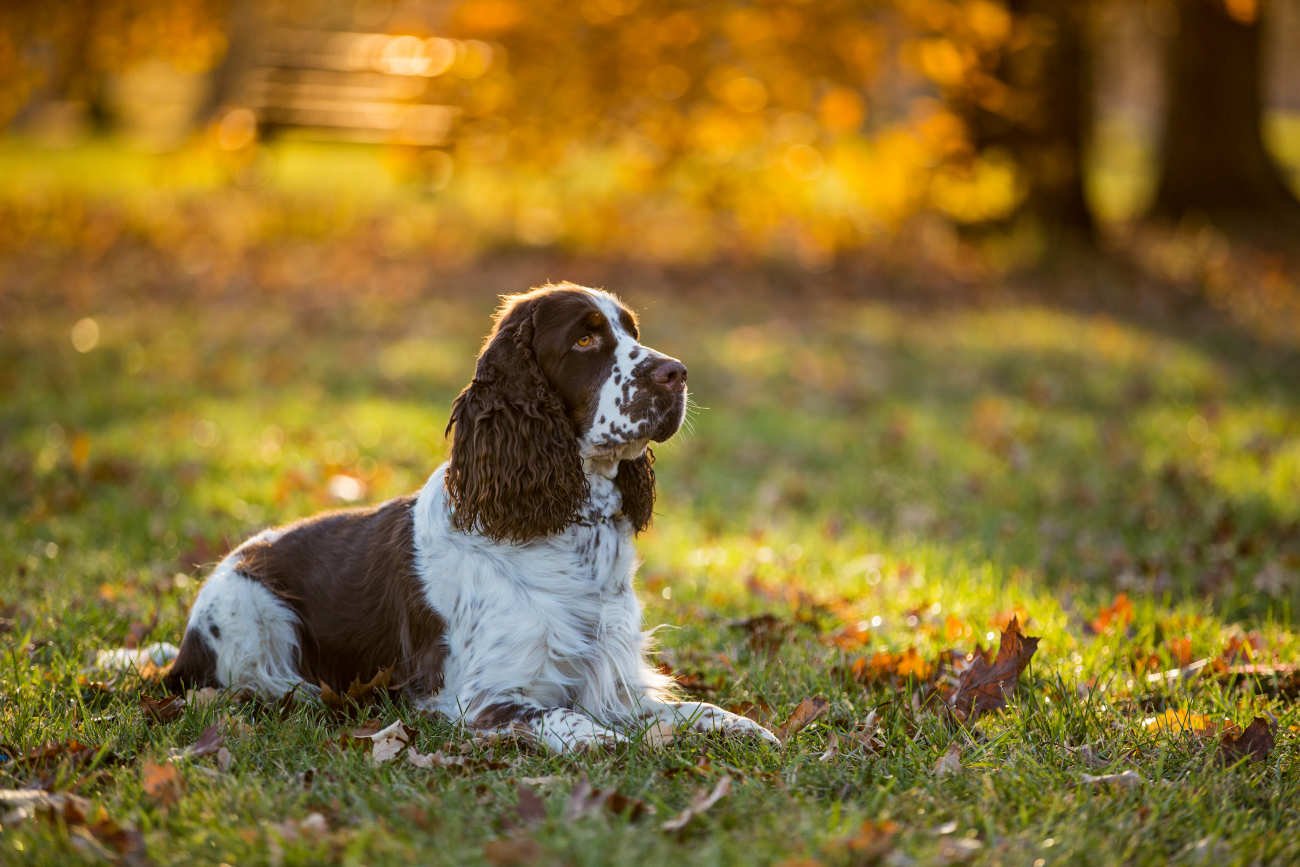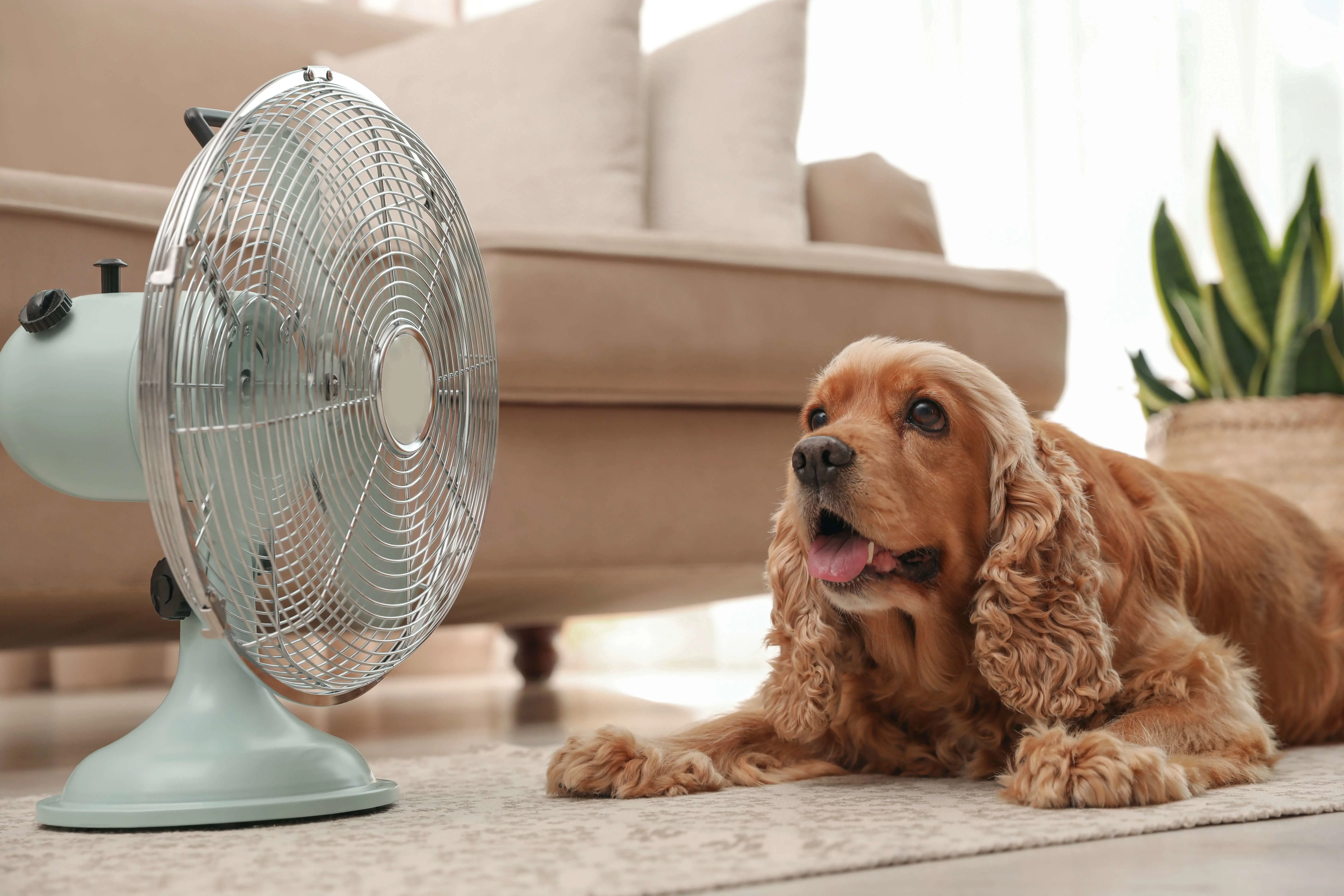Are Yorkshire Terriers hypoallergenic dogs?
24th November, 2023
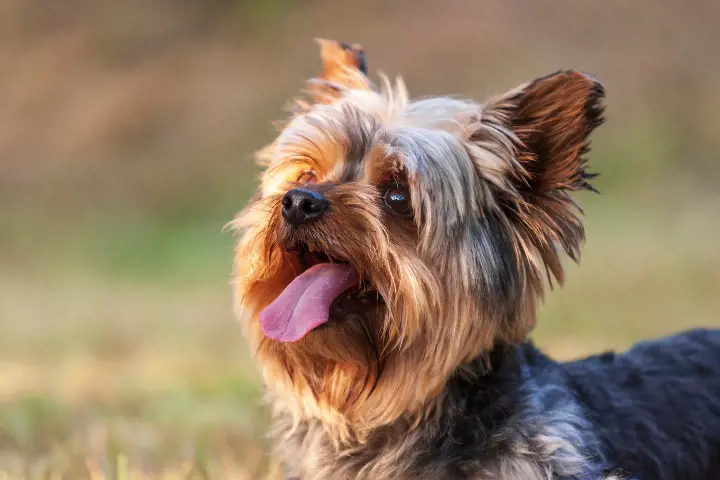
If you're looking for a dog that won't cause allergic reactions, you may have heard the term "hypoallergenic" being used to describe certain breeds.
Yorkshire Terriers are a popular breed, but are they hypoallergenic dogs?
In this article, we'll discuss what makes a breed hypoallergenic and whether Yorkshire Terriers fit the bill.
Signs you may be allergic to dogs
Do you suspect that you might have an allergy to dogs?
The most common dog allergy symptoms include:
- Sneezing
- Itchy skin
- Runny nose
- Redness and watering of the eyes
- Asthma-like symptoms such as wheezing and difficulty breathing
It's important to note that not all people who experience these symptoms are necessarily allergic to dogs.
Some individuals may have a sensitivity to pet dander (dead skin shed by dogs), or other allergens found in dog fur, which can cause similar symptoms.
A doctor can administer allergy tests to determine the exact cause of your symptoms. If you do have a dog allergy, it can be challenging to manage.
Avoiding contact with dogs is the best way to prevent allergy symptoms from occurring, but this may not always be possible.
Medications such as antihistamines and nasal sprays can help minimise allergic reactions, but they are not a cure. In severe cases, allergy shots may be recommended.
What does hypoallergenic mean?
When we say a dog is hypoallergenic, it doesn't mean they are excluded from being an allergy trigger, it's simply less likely to cause an allergic reaction in owners and allergy sufferers.
However, it's important to note that no dog breed is completely hypoallergenic. All dogs produce dander, which is made up of tiny flakes of dead skin, and dogs also produce saliva that can also surprisingly cause allergies as well.
So, when we talk about hypoallergenic dogs, we're really talking about dogs that produce less dander and saliva than different breeds and reduce allergic reactions.
What makes a dog hypoallergenic?
The main factor that determines whether a dog is hypoallergenic or not is the amount of shedding it does.
Dogs that shed less tend to produce less dander, which is the main culprit when it comes to allergies. However, it's also important to consider other factors that can contribute to allergies, such as saliva and urine.
Some breeds are considered hypoallergenic because they have a single coat, rather than a double coat like many other dog breeds.
Double-coated breeds shed more, which means they produce more dander.
Breeds with hair rather than fur are also sometimes considered hypoallergenic because they don't shed as much.
There aren’t any consistently hypoallergenic dog breeds, just some dogs are more likely than others to be.
Why humans may have allergies and why dogs may cause allergic responses?
There are several factors that can affect whether someone has a dog allergy or not. Some of the common factors include:
Genetics
Family history of the owner plays a significant role in developing allergies. If one or both parents have allergies, there is a higher likelihood of their children developing allergies as well.
Exposure
Allergen exposure in childhood can also play a role in developing allergies later in life.
If someone has not been exposed to dogs or has had limited exposure, they may be more likely to develop an allergy when they encounter dogs later in life.
Coat
The most important factor when looking for a dog breed that is less likely to cause an allergic response is the dog's coat type.
Dogs with non-shedding coats or hair-like coats, such as Poodles, Bichon Frises, and Yorkies, are often better for people with allergies as they produce less dander and shed less.
On the other hand, dogs with thick, double-layered coats or heavy shedding coats, such as Huskies, German Shepherds, and Golden Retrievers, tend to produce more dander and shed more, making them more likely to trigger allergies.
Size
Another factor to consider is the dog's size. Larger dogs tend to produce more dander and shed more, while a toy breed, like a Yorkie, produces less.
However, this is not always the case, as some small dogs, such as Terriers, can have heavy shedding coats.
Activity level
A dog's temperament can also be a factor. Dogs that are highly active and require large amounts of exercise may produce more dander and shed more, making them less than ideal for people with allergies.
However, dogs that are more relaxed and calmer may produce less dander and shed less, making them better for allergy sufferers.
It's important to remember that every individual's allergies are unique, and what works for one person may not work for another.
It's always a good idea to spend some time with a yorkie before deciding to adopt, in order to determine whether or not you can tolerate their dander and shedding.
The truth about Yorkshire Terriers and allergies
So, are Yorkies 100% hypoallergenic? Unfortunately, the answer is no. While they don't shed as much as some other dog breeds, they still produce dander and saliva, that can cause allergies.
This means that if you're an allergy sufferer, a Yorkshire Terrier is unlikely to be a good choice for you.
However, it's worth noting that some people with allergies may be able to tolerate Yorkshire Terriers better than other breeds.
This is because they produce less dander than some different breeds, and they also have hair rather than fur, which can be less irritating to some people.
Yorkshire Terriers and their shedding habits
While Yorkshire Terriers aren't completely hypoallergenic, they do shed less than many other breeds. This is because they have hair rather than fur, and their hair grows continuously rather than shedding in large amounts.
However, they still require regular grooming to prevent matting and tangling of their hair.
If you're considering a Yorkshire Terrier as a pet, it's important to be aware that they do still shed, and their hair can be a nuisance if it's not properly groomed.
You'll need to brush your Yorkshire Terrier regularly, and you may also want to consider having them professionally groomed every few months.
Tips and tricks for living with a Yorkshire Terrier if you have allergies
If you're an allergy sufferer but still want to live with a Yorkshire Terrier, there are a few things you can do to minimize your exposure to allergens.
Here are some tips:
- Keep your Yorkshire Terrier out of your bedroom, and preferably out of any rooms where you spend a lot of time.
- Use a HEPA air purifier to remove allergens from the air. This is a great idea if any household pets suffer from allergies as well, check out our article for more information on allergies in dogs.
- Bathe your yorkie regularly, keeping a yorkie's coat clean can make all the difference!
- Vacuum regularly with a vacuum cleaner that has a HEPA filter.
- Wash your hands after petting your Yorkshire Terrier and avoid touching your face.
- Schedule proper grooming appointments for your Yorkie regularly.
- Consider using allergy medication to help control your symptoms.
- Mixing a tablespoon of apple cider vinegar or lime juice into a glass of water could help reduce allergy symptoms once ingested. Both have natural antihistamine properties that may reduce congestion and swelling in the nasal passages.
Other hypoallergenic breeds to consider
If you suffer from allergies but still want to add a furry friend to your household, there are many other higher-probability hypoallergenic dog breeds to consider.
Here are a few:
- Poodle: This breed is often considered the most hypoallergenic of all breeds, thanks to its curly, non-shedding coat.
- Bichon Frise: This breed has a curly, fluffy coat that doesn't shed much.
- Maltese: This breed has longer hair that is just one single layer and less likely to shed often.
- Shih Tzu: Another favourite among long haired breeds, this dog's fur is silky and less prone to shedding.
Conclusion: Are Yorkshire Terriers a hypoallergenic breed?

While Yorkshire Terriers are a popular breed, they're not hypoallergenic dogs. There is no allergy free dog, but Yorkies do shed less than some other dog breeds and cause less allergic reactions.
If you suffer from allergies or want to reduce your exposure to allergens, a Yorkshire Terrier is likely as close to hypoallergenic as you can get.
Just be prepared to brush and groom them regularly and take steps to minimise allergens in your home.
If you do decide to get a Yorkshire Terrier, it's important to make sure you have the right insurance in place to protect them.
To get a Yorkshire Terrier insurance quote for your furry friend, you can get a quote through our website. If you would like to talk to one of our pet insurance team, you can get in touch with us on 0330 102 5748.
Helpful Pages
Recent Posts
Pet Insurance Quote
- 98% claims paid *
- Claims paid directly to vets
- 24/7 vet video consultations
- Interest free monthly payments

